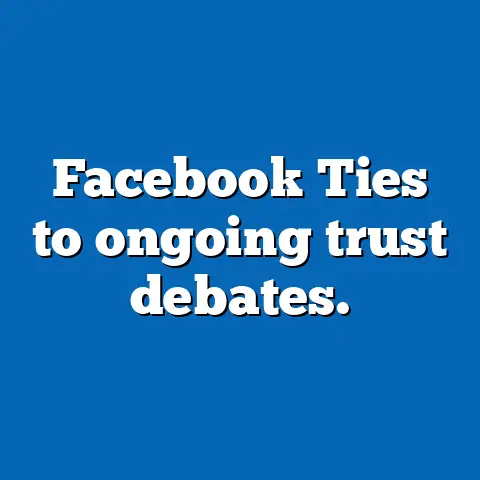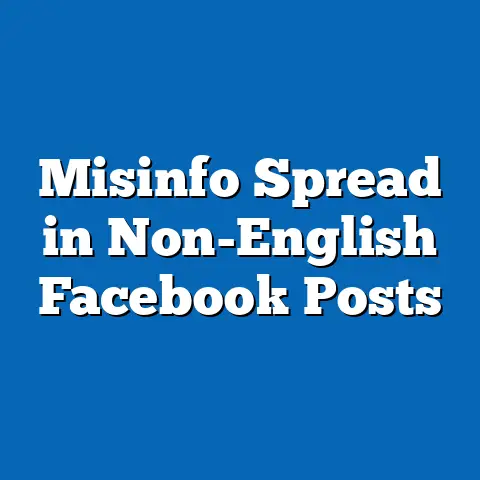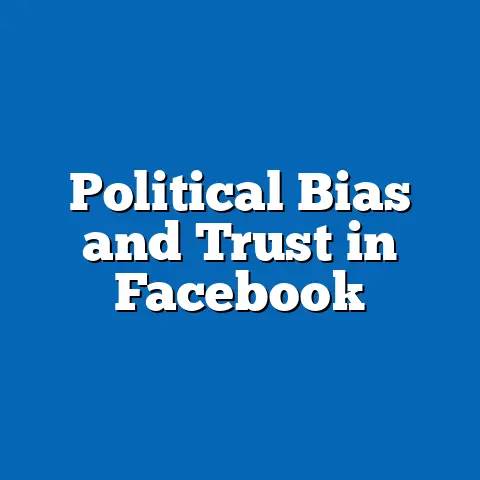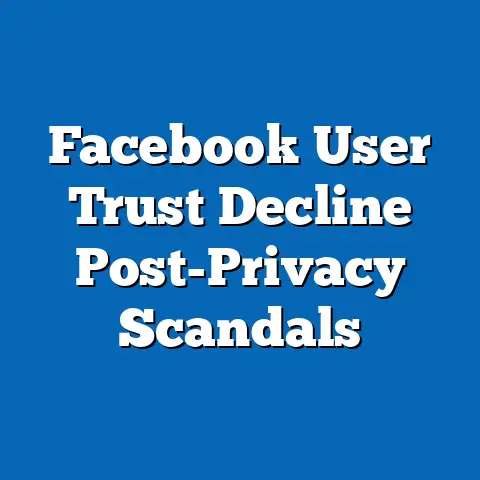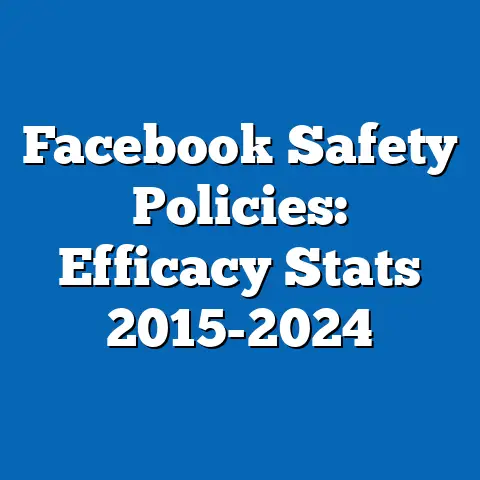Facebook FB’s Mental Health Impact
The Mental Health Impact of Facebook: A Generational Perspective
Introduction: The Trendsetter’s Choice – Millennials and the Rise of Social Media
Millennials, often hailed as digital natives, were the first generation to embrace Facebook as a transformative tool for connection and self-expression.
Born between 1981 and 1996, this cohort grew up amid rapid technological advancements, making the platform’s launch in 2004 a pivotal “trendsetter’s choice” that redefined how people interacted online.
Key defining characteristics of Millennials include their tech-savviness, emphasis on individualism, and desire for community, which aligned perfectly with Facebook’s features like status updates and friend networks.
Historically, this choice emerged from a context of early 2000s globalization and the dot-com boom, where Harvard student Mark Zuckerberg created Facebook as a niche college directory before it exploded into a global phenomenon.
This article examines Facebook’s mental health impact through the lens of generational studies, analyzing how different cohorts—ranging from Baby Boomers to Gen Z—experience the platform differently based on their unique traits and historical contexts.
By integrating data from sources like the American Psychological Association and Pew Research Center, we will explore technological, economic, social, and cultural factors influencing these dynamics.
Ultimately, this analysis highlights the nuances within generations, compares their interactions with Facebook, and discusses broader implications for society, workplaces, and mental health policies, while offering forward-looking insights into evolving digital landscapes.
Historical Context: The Evolution of Facebook and Generational Adoption
Facebook’s inception in 2004 marked a watershed moment in digital communication, initially targeting college students and quickly expanding to broader demographics.
This platform emerged during a period of significant technological shifts, including the widespread adoption of broadband internet and smartphones, which facilitated its growth from a university network to a global behemoth with over 2.9 billion monthly active users by 2023.
Generations played a crucial role in this evolution, with each cohort adopting Facebook at different life stages and for varying purposes.
For Baby Boomers (born 1946-1964), the platform represented a novel way to reconnect with old friends, often after retirement or during empty-nest phases, reflecting their historical context of post-war stability and economic prosperity.
In contrast, Gen X (born 1965-1980) used Facebook as a professional networking tool during the 2008 financial crisis, when job insecurity heightened the need for online visibility.
Millennials, as trendsetters, integrated it into their daily routines for social and identity formation, influenced by events like 9/11 and the Great Recession, which fostered a sense of global interconnectedness.
Gen Z (born 1997-2012) encountered Facebook in a more saturated social media environment, often viewing it as a legacy platform compared to TikTok or Instagram.
This historical trajectory underscores how economic factors, such as recessions, and cultural shifts toward digital nomadism shaped generational engagement.
According to a 2021 Pew Research Center report, 69% of adults in the U.S.
used Facebook, with adoption rates varying by age: 64% for Millennials, 56% for Gen X, 48% for Baby Boomers, and 38% for Gen Z.
These statistics reveal not just popularity but also the platform’s role in exacerbating mental health issues, as internal documents leaked in 2021 (via the Facebook Papers) showed executives were aware of features contributing to negative self-comparisons.
Experts like psychologist Jean Twenge argue that this historical context of rapid tech adoption created a “social acceleration” effect, where younger generations faced unprecedented exposure to curated online realities.
Thus, Facebook’s evolution mirrors broader societal shifts, from analog to digital sociality, setting the stage for generational disparities in mental health outcomes.
Generational Definitions and Characteristics: Setting the Foundation
To analyze Facebook’s mental health impact, it’s essential to define generations and their core characteristics, acknowledging the diversity within each group.
Baby Boomers are typically defined as those born from 1946 to 1964, shaped by events like the Civil Rights Movement and Vietnam War, fostering traits of optimism, hard work, and community involvement.
However, not all Boomers fit this mold; socioeconomic differences, such as those between urban and rural individuals, influence their tech interactions.
Gen X, born 1965-1980, is characterized by independence and skepticism, molded by latchkey childhoods and economic volatility, leading to a pragmatic approach to social media.
Millennials, born 1981-1996, are often seen as collaborative and innovation-driven, influenced by the internet’s rise and events like the 2008 recession, which emphasized adaptability and digital fluency.
Yet, internal variations exist, such as between early Millennials (exposed to dial-up internet) and later ones (who grew up with smartphones).
Gen Z, born 1997-2012, embodies digital nativism and social awareness, shaped by the Great Recession, climate change activism, and the COVID-19 pandemic, prioritizing authenticity and mental health advocacy.
Quantitative data from the CDC indicates that Gen Z reports higher rates of anxiety (27% in 2022) compared to Millennials (22%), partly linked to social media use.
Qualitative research, such as interviews in Sherry Turkle’s 2011 book “Alone Together,” highlights how these characteristics interact with Facebook: Boomers might use it for nostalgic photo-sharing, while Gen Z critiques its algorithms for promoting unrealistic standards.
This diversity underscores that generational traits are not monolithic but influenced by intersecting factors like race, gender, and geography.
By comparing these groups, we avoid stereotypes and recognize that while Boomers may experience “Facebook fatigue” due to information overload, Gen Z might leverage it for activism, as seen in movements like Black Lives Matter.
Thus, understanding these definitions provides a framework for examining mental health impacts.
Mental Health Impacts: A Generation-by-Generation Analysis
Facebook’s influence on mental health varies significantly across generations, driven by differences in usage patterns, life stages, and exposure to platform features.
For Baby Boomers, research from the Journal of Medical Internet Research (2020) shows that while Facebook can combat loneliness—particularly for those in isolated living situations—it also correlates with increased stress from misinformation and family conflicts.
For instance, a study by the AARP found that 42% of Boomers reported anxiety from political posts during the 2020 U.S.
elections, exacerbated by their historical context of trusting institutions, which clashes with online echo chambers.
However, positive aspects include enhanced social support, with 58% of Boomers using the platform to maintain family ties, potentially mitigating depression.
Gen X users often face “comparison fatigue,” where seeing peers’ successes triggers midlife dissatisfaction, as noted in a 2019 Pew study linking heavy use to higher burnout rates.
Economic pressures from their formative years make Gen X more prone to FOMO (fear of missing out), with a 2022 survey by the Mental Health Foundation indicating that 35% of Gen X respondents associated Facebook with work-related stress.
Yet, nuances exist; some Gen X individuals use privacy settings effectively, reducing negative impacts, and expert perspectives from sociologists like Arlie Russell Hochschild emphasize their resilience from past economic hardships.
Millennials, as trendsetters, experience the most documented mental health effects, with a 2019 study in the American Journal of Preventive Medicine linking prolonged Facebook use to elevated depression rates (up to 2.7 times higher for heavy users).
Their characteristics—such as a focus on personal branding—amplify issues like self-comparison, as Zuckerberg’s platform encourages curated profiles.
Historical events like the Arab Spring, where Facebook facilitated activism, contrast with its role in cyberbullying, affecting 41% of Millennials per a 2021 Common Sense Media report.
Social factors, including economic instability, compound this, but diversity within Millennials means that marginalized groups, like LGBTQ+ individuals, might find community support outweighing risks.
For Gen Z, the mental health toll is pronounced, with the 2023 State of Mental Health in America report from Mental Health America showing that 42% of teens attribute anxiety to social media.
Cultural factors, such as growing up with algorithmic feeds, lead to issues like body image dissatisfaction, as evidenced by internal Facebook data revealing that Instagram (a subsidiary) worsened body issues for one in three teen girls.
Technological advancements mean Gen Z uses Facebook less than peers like TikTok, but when they do, it’s often for group chats or events, potentially fostering belonging.
Expert Sherry Turkle notes that while Gen Z is more aware of mental health, the platform’s design—promoting endless scrolling—can hinder real-world interactions, leading to isolation.
Overall, quantitative data from the World Health Organization (2022) estimates that social media contributes to 10-20% of global youth mental health disorders, with generational differences highlighting the need for tailored interventions.
Comparative Analysis: Contrasts and Commonalities Across Generations
Comparing generations reveals both common mental health threads and distinct contrasts in Facebook’s impact, emphasizing the role of technological, economic, social, and cultural factors.
Baby Boomers and Gen X share similarities in using Facebook for relational maintenance, but Boomers’ optimism often buffers negative effects, whereas Gen X’s skepticism leads to quicker disengagement, as per a 2022 Nielsen report showing 25% of Gen X users deactivating accounts due to stress.
In contrast, Millennials and Gen Z exhibit higher engagement but differ in motivations: Millennials seek validation through likes, tied to their economic-driven self-presentation, while Gen Z prioritizes authenticity, critiquing Facebook’s commercialism.
A 2021 comparative study by the Journal of Adolescent Health found that Millennials report more depression from social comparison, whereas Gen Z experiences greater cyberbullying impacts, with 59% of teens affected versus 48% of young adults.
Economic factors amplify these differences; for instance, during recessions, Gen X and Millennials used Facebook for job searches, heightening anxiety, while Gen Z, facing climate anxiety, leverages it for activism.
Socially, cultural shifts toward individualism mean all generations face isolation, but Boomers benefit from in-person networks, reducing reliance on the platform.
Acknowledging nuances, not all within a generation are affected equally—rural Gen Z might use Facebook for community more positively than urban counterparts.
Experts like psychologist Maryanne Wolf argue that while technological factors like algorithms harm all users, generational historical contexts shape resilience; Boomers’ analog upbringing aids digital detachment, unlike digital-native Gen Z.
Thus, this comparative lens avoids oversimplification, showing that while commonalities like increased anxiety exist, contrasts in life stages and values create varied mental health outcomes, informing targeted strategies.
Societal Implications: Effects on Culture, Workplaces, and Beyond
In workplaces, Gen X and Millennials face productivity losses from “Facebook distractions,” with a 2020 Gallup poll linking social media to 20% of workday interruptions, exacerbating burnout amid economic pressures.
For Baby Boomers in retirement, it influences family dynamics, sometimes causing generational divides over digital misinformation.
Social implications include amplified polarization, as all generations encounter echo chambers, but Gen Z’s activism has led to positive changes, like policy reforms on online harassment.
Quantitative data from the OECD (2022) indicates that social media-related mental health issues cost economies $1 trillion annually in lost productivity, with generational disparities highlighting the need for age-specific interventions.
Culturally, this underscores a shift toward digital literacy education, while workplaces adopt policies like social media breaks, particularly for younger employees.
Overall, these implications call for societal adaptations to mitigate harms while harnessing benefits.
Forward-Looking Insights and Conclusion: Navigating an Uncertain Digital Future
Looking ahead, Facebook’s mental health impact will evolve with emerging technologies like AI and VR, potentially exacerbating generational divides.
For Baby Boomers, aging populations may increase reliance on platforms for health support, but risks like deepfakes could heighten anxiety.
Gen X might advocate for regulatory reforms, drawing from their pragmatic nature, while Millennials could lead in creating balanced digital habits.
Gen Z, with their mental health advocacy, may drive innovations like algorithm transparency, as suggested by a 2023 Meta report on youth well-being features.
However, uncertainties remain, such as the long-term effects of metaverse integration, which could either bridge generational gaps or widen mental health disparities.
Experts like psychologist Adam Alter predict that without proactive measures, social media’s harms will persist, but generational collaboration offers hope for positive change.
In conclusion, analyzing Facebook’s mental health impact through generational lenses reveals a complex interplay of historical, technological, and social factors.
By acknowledging diversity and promoting data-driven policies, society can foster healthier digital environments, ensuring future generations navigate these challenges with resilience and insight.

